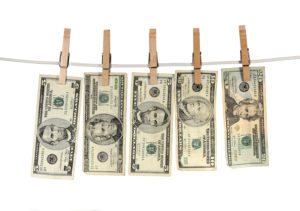
Cases involving racketeering are complicated, and federal officials devote a substantial amount of money and resources to investigating racketeering and to pressing charges against those who engage in unlawful misconduct related to their business dealings.
If you have been charged with racketeering, you need to make certain you are represented by a federal criminal defense attorney with the knowledge and skill necessary to give you the best chance of not being convicted of a serious federal offense.
LV Criminal Defense knows the laws on racketeering very well. Our firm has represented many clients in Oregon, California, Utah, Arizona, and surrounding areas who have been charged with racketeering crimes. We know the ins and outs of the law, and we can assist with developing the most proactive and effective method of responding to criminal charges.
We can help you negotiate a plea agreement, arrange a deal to provide information in exchange for charges being dropped, or fight in court for an acquittal. In every situation, we will work with you to understand your goals, evaluate the evidence against you, and determine the best approach to responding to charges. Just give us a call to find out more about the help that we can offer.
Federal laws on racketeering are found within 18 U.S. Code Chapter 95. Within that Chapter are 12 statutes. However, two of those statutes were renumbered, so the remaining laws that define racketeering crimes on the federal level include the following:
Nick Wooldridge has a long track record of representing clients accused of serious federal and state crimes in Nevada.
When you are charged with a racketeering offense, you need to understand the specific details set forth in the statute that gives rise to your criminal charges. For example, 18 U.S. Code section 1951 defines the crime of interference with commerce using threats or violence.
In order for a defendant to be convicted of this offense, a prosecutor would need to show that the defendant somehow obstructed, delayed, or affected commerce or affected, delayed, or obstructed the movement of any article of commerce. The prosecutor would need to show the defendant committed this obstruction or affected commerce through robbery, extortion, or a conspiracy to rob or extort; or would ned to show that the defendant obstructed or interfered with commerce by either committing physical violence or threatening to commit physical violence.
The statute goes on to define robbery to include unlawfully taking or obtaining personal property against the will of the rightful owner by force, threat of force, violence, or fear of immediate injury to the rightful owner’s person, property, family members, or family members’ property. Extortion is defined by the statute to include obtaining property from a rightful owner with consent when that consent was forced by the wrongful use of actual force, threats of force, actual or threatened violence, or a claim that the person taking the property was acting under official right.
If a prosecutor is able to prove that commerce was interfered with through extortion, robbery, or other prohibited means, a defendant who is convicted under 19 U.S. Code section 1951 could be sentenced to a maximum of 20 years of imprisonment as well as a fine.
This is just one of several statutes that define specific types of racketeering crimes and that set forth specific elements of the crime that must be proved for a defendant to be convicted. In order for a defendant to be found guilty, a prosecutor must prove each specific part of a crime beyond a reasonable doubt.
When I initially met with Mr. Wooldridge, he took the opportunity to sit and go over my problem with me. He described details in my case which he found disturbing and explained why he I should have him on my side.
LV Criminal Defense can help you understand the specifics of what a prosecutor would need to prove for you to be found guilty, depending upon the criminal charges against you.
When you have been accused of racketeering, you are facing very serious federal criminal charges. The consequences for conviction could be life-changing, so you need to ensure that you respond assertively and make the right choices to protect your freedom and future.
Finding the right federal criminal defense attorney is essential, as you need a lawyer who understands RICO charges and who will make smart decisions regarding how best to fight serious accusations. LV Criminal Defense can help you from the start of an investigation into your conduct.
We can work with you if you are asked to answer questions by federal investigators so you can avoid incriminating yourself, and we can help you to investigate and build evidence that casts doubt on your guilt. We can also help you to decide how to plead and to carry out your strategy by negotiating a plea deal on your behalf or fighting for an acquittal in court.
If you live in Arizona, California, Nevada, Utah, Oregon, or surrounding areas and you are facing criminal charges for racketeering, our experienced and compassionate legal team is here and ready to help you.
To find out more about how LV Criminal Defense can represent your interests when you fight charges under 18 U.S. Code Chapter 95, give us a call today.